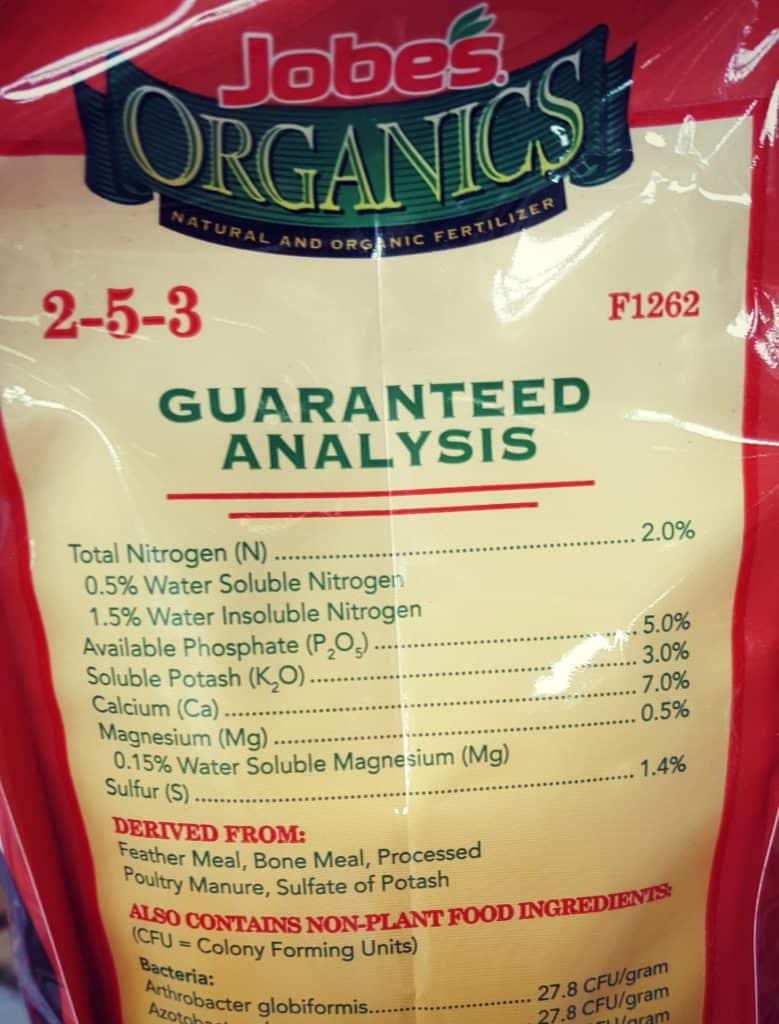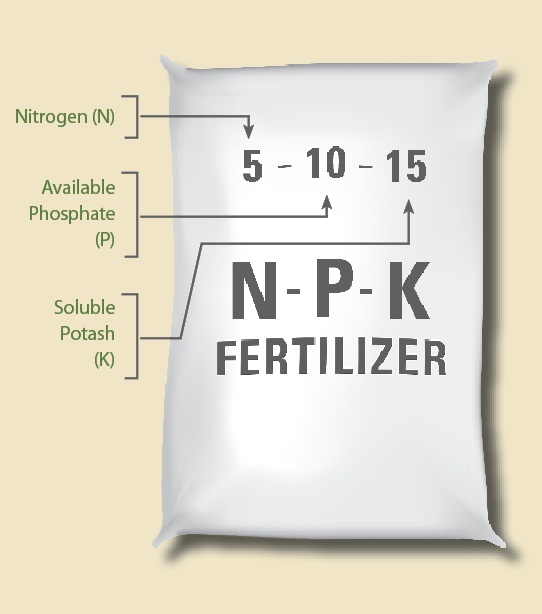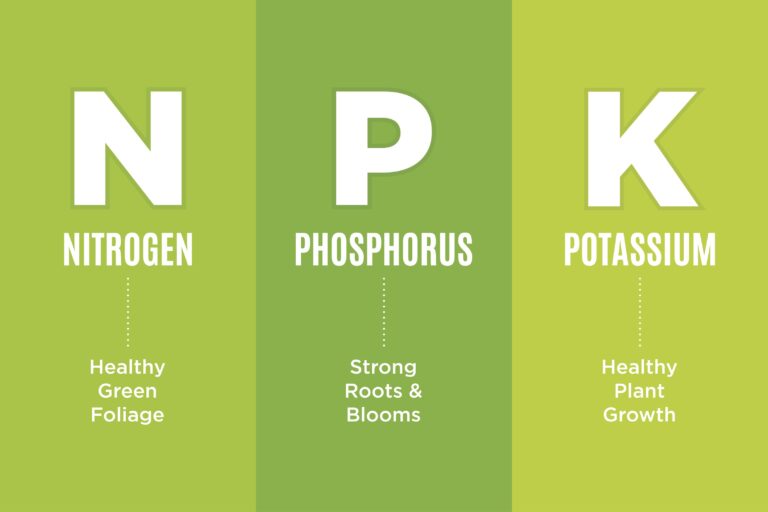
What Does NPK Stand For? And Other Fertilizer Basics Basic, Fertilizer, Standing
What do the Letters NPK Mean in a Fertilizer? Prev Next You've probably noticed the letters N, P, and K on bags or boxes of commercial fertilizer. Although it can get a bit confusing, it's important to understand the meaning of each letter.

What Does NPK Stand For? And Other Fertilizer Basics You Should Grow
Potassium (K) - Potassium is a nutrient that helps the overall functions of the plant perform correctly and supports the plant's vitality. (Note that potassium is usually provided in the form of potash, also known as K2O) The fertilizer numbers' percentages are calculated by weight.

What Does NPK Stand For? And Other Fertilizer Basics You Should Grow Organic gardening
The letters NPK stand for the three main nutrients that plants need to thrive - nitrogen, phosphorus, and potassium. Plants need micronutrients like iron, calcium, and even chlorine, but N, P, and K are the big three. NPK nutrients explained: What do those numbers on the bag mean?

What Do The Numbers Mean On Fertilizer? NPK Ratio Explained Garden Crafted
What The Numbers Mean Why These Three Nutrients? How N-P-K Affects Plants When To Use Different Ratios What the Numbers Mean All fertilizer products must provide some uniform information to help consumers compare products easily. Every label carries three conspicuous numbers, usually right above or below the product name.

What Does NPK Stand For? And Other Fertilizer Basics You Should Grow
What does NPK stand for? The NPK meaning reflects the three elements found in this fertilizer mixtures— nitrogen, phosphorus, and potassium. The three letters refer to the chemical symbols.

A quick guide to NPK fertiliser and why your plants need it David Domoney Fertilizer for
N stands for nitrogen. You probably knew that one. This nutrient is the leaf and stem developer, and adding nitrogen will get things growing fast. It's always perfect for leafy veggies. After all, it's the leafy part that we're after in vegetables like cabbage, lettuce, Swiss chard, kale, etc. P stands for phosphorus.

Peeling Back The NPK Mystery NPK Explained Bonsai Outlet
What does NPK stand for? (N) Nitrogen=Leaves and Lawns Plants will use the nitrogen to grow really pretty green leaves. Plants preferentially take up nitrogen so too much will suppress the production of fruit. (P) Phosphorous= Flowers, Fruits, and Roots Plants use the phosphorous to produce and reproduce.

A graphic explains how the NPK fertilizer initials stand for nitrogen, phosphorus and potassium
These 3 numbers are printed on the package. NPK stands for "nitrogen, phosphorus, and potassium". To be more precise: N is the amount of nitrogen available in the fertilizer, as a percentage by weight.. P is the amount of phosphate (P2O5) available in the fertilizer, as a percentage by weight. K is the amount of potash (K2O) available in.

Organic Hydroponic Nutrient FAQs
What is the N-P-K? What are nitrogen, phosphorus, and potassium? Let us take the guesswork out of fertilizing. We'll explain the N-P-K ratio and what those numbers on fertilizers mean. It's all about the soil. Most soil doesn't have all the nutrients needed for optimal growth, which means you won't get the harvest or flower bloom desired.

What Does NPK Stand For? And Other Fertilizer Basics You Should Grow
NPK stands for nitrogen, phosphorus, and potassium: the three primary macronutrients that plants need to grow strong and healthy. These three nutrients are found in most fertilizers and are important for different stages of plant growth. On a fertilizer package, you'll see NPK represented by three numbers, such as 10-5-5.
/what-does-npk-mean-for-a-fertilizer-2131094-hero-04-b15bf42055d94374b3ba8ea06763e594.jpg)
What Does NPK Stand for on a Fertilizer Label?
NPK in fertilizer stands for Nitrogen (N), Phosphorus (P), and Potassium (K), indicating the ratio or percentage composition of the three important nutrients for plants in a fertilizer. N-P-K Meaning in Fertilizer NPK simply represents the three macro-nutrients that are needed for the healthy growth of a plant.

What Does NPK Stand For? And Other Fertilizer Basics You Should Grow
The letters "NPK" on a fertilizer label stand for nitrogen, phosphorus, and potassium, the three primary nutrients plants need to grow. The numbers on the label indicate the ratio (by percentage) of nitrogen, phosphorus, and potassium in the fertilizer container. Even if you do not see the letters N-P-K, but you see a set of three numbers, for.

What Does NPK Stand For? (Fertilizer Label Meaning) LawnsBesty
What does NPK stand for? The Role of Each Nutrient Too little or too much NPK in your lawn? How to recognise it! Why the composition of fertiliser is so important Percentages and composition of NPK fertiliser Why doesn't the NPK add up to 100? Secondary nutrients and trace elements FAQ It's a conundrum.

What Does NPK Stand For? And Other Fertilizer Basics You Should Grow Plant food, Fertilizer
What does NPK Stand For? The NPK ratio is the amount of Nitrogen (N), Phosphorus (P), and Potassium (K). They always appear in that order and may be equal (e.g. 10: 10: 10) or each may be different (e.g. 18: 24: 10), depending on each compound's concentration.

What Is NPK Fertilizer? And What Does NPK Do for Plants? Easy garden, Fertilizer, Healthy garden
The first number shows the ratio of nitrogen in the fertilizer. The second number represents the ratio of phosphorus. The third number is the ratio of potassium. The formulation is, therefore, an N-P-K fertilizer, whether it is a liquid concentrate or even a granular feed. Some fertilizers may contain other elements such as humic acid, fluvic.

A Complete Guide to NPK fertilisers what does it mean and what does it do? MOOWY
What Does NPK Stand For? NPK stands for the chemical symbols of the three main elements plants need to grow: Nitrogen(N), Phosphorus(P), and Potassium(K). These numbers you see on fertilizer packaging refer to the percentage by weight of each element. For example, a 10-5-5 fertilizer will have 10% nitrogen, and 5% each of phosphorus and.